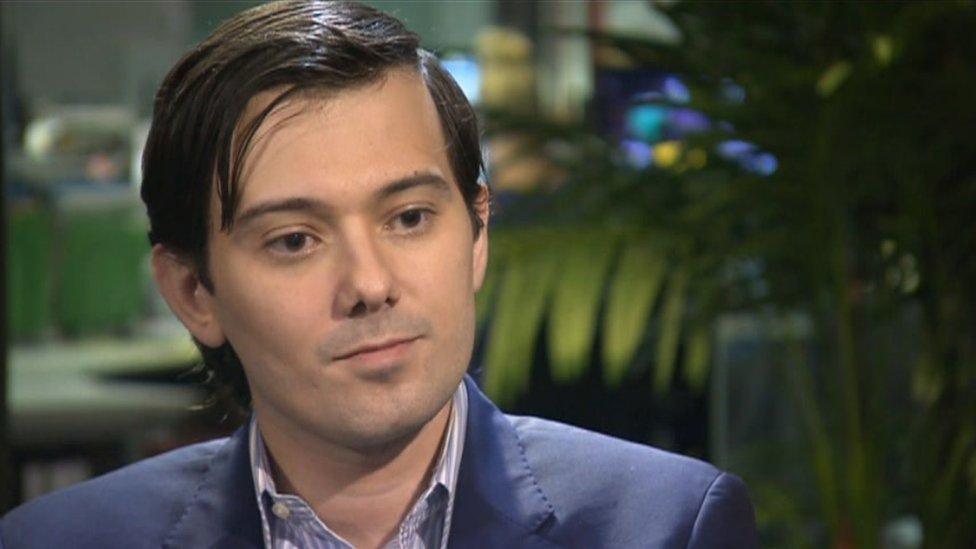What's a fair price for a drug?
- Published

Agreeing a price for any drug is a tricky business.
In the UK, the NHS is the main buyer and prices are set through a voluntary scheme between manufacturers and the government, trying to strike the right balance of serving patients and generating money to keep the drug pipeline going. Profits are capped to stop prices creeping too high.
In the US, the buyers are private insurance companies as well as the government through the Medicare and Medicaid system. It's a market and prices can go up and down, depending on what people are willing to pay.
In recent years, pharmaceutical research and development has slowed and companies have to think carefully about what they invest in. Blockbusters such as Viagra pull in money, but drugs for rare diseases can be less attractive. Not many patients use them, and so turning a profit may be difficult.
Turing Pharmaceuticals says that is why it has hiked the price of Daraprim - a drug used for treating a rare but sometimes deadly infection called toxoplasmosis.
Greater good?
Turing's controversial founder and chief executive, former hedge-fund manager Martin Shkreli, who was fired from his last biotech venture, says he isn't doing this out of greed, but for justifiable business reasons.
He says he has put systems in place to give the drug away free to those who really can't afford it and that some of the profit made will be ploughed into the research and development of new and better drugs.
He hopes that by creating a market, other drug companies will join in on this innovation to find new treatments for rarer diseases.
Turing Pharmaceuticals boss Martin Shkreli had previously defended the price raise
For those who must buy it, the price tag is reported to be $750 (£485) a tablet, compared with $13.50 before the increase. It's thought to cost about $1 to produce, but Mr Shkreli says that does not include other costs such as distribution.
In the UK, the same drug is currently sold by GSK at a cost of £13 for 30 tablets.
Critics say the decision to allow such a massive price jump in the US is outrageous and is more about lining pockets than driving innovation.
The scrutiny of US drug prices is increasing.
In the past few weeks, there was a similar outcry over a recent price increase of a drug for tuberculosis in the US. That company, Rodelis Therapeutics, quickly agreed to return the drug to its former owner, a non-profit organisation affiliated with a university.
On Wall Street, biotech shares fell sharply on Monday after Democratic presidential candidate Hillary Clinton accused Turing Pharmaceuticals of "price gouging" and pledged to take action against companies hiking prices for specialty drugs.
If money talks, hurting the profits of pharmaceutical companies would send a clear and loud message, but at what cost? Hopefully not drug innovation.
- Published22 September 2015
